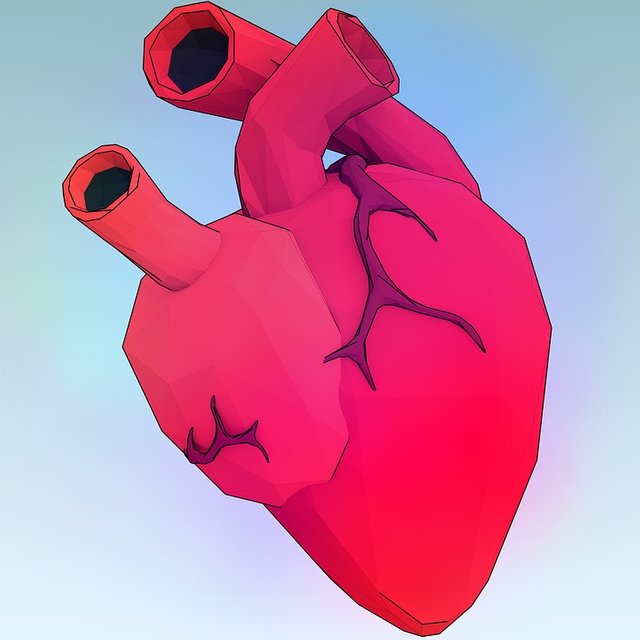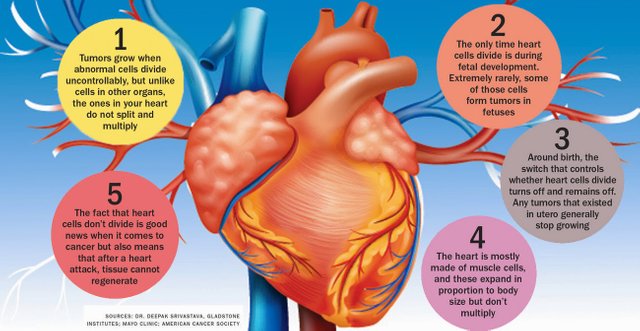The Reason Why We Don't Get Heart Cancer
Cancer is a disease that affects the cells presented in every inch of our body. So why we never see cases of heart cancer? What makes it almost immune to the most killing disease in our world?

The heart is the most magical and fascinating part of out bodies. It starts beating before we are born and will continue beating 24/7, 365 days of the year, unstoppably until the day we die, without we even noticing or making effort. Such a demanded organ, perhaps more than any other in our body could be an easy target to the most killing disease in our society. Still we probably never heard about a case of someone dealing with heart cancer, maybe breast, lungs, skin, throat, bones, colon, uterus, brain, even blood... but never a heart type. Why is this large and infinitely important component such an inhospitable host to the disease?
Heart Cancer, Possible But Rare.
Although we never see cases, heart cancer exists and it's possible to develop although it is an extremely rare disease. According to an article on the Scientific American magazine website, any cell in the body has the potential to become malignant, therefore cancer can, in fact, affect the heart. Cancer arises from mutations in the DNA of a cell. Usually, a cancerous cell undergoes several mutations before it becomes a deadly, invasive cancer. Most of these mutations occur when the cell is dividing and replicating its DNA. The only way for a cell to propagate a mutation is to divide and pass those mutations on to its daughter cells. With regard to the heart cells, however, they just go right on pumping and doing their job and don't replicate to make new heart cells unless there has been some injury. With so little cell division going on in the heart there is very little chance for mutations to occur and get passed on to daughter cells.
On the most common organs - breast, colon, and skin, among others - most of the cells are replacing themselves all the time. Breast tissue is constantly affected by hormones and is always growing and shrinking. The lining of the colon is continually sloughing off and being replaced. The same is true of the skin. In addition, skin and colon cells are constantly being exposed to things that induce mutations--ultraviolet rays for the skin and carcinogens in food for the colon. As a result, the likelihood of mutations is higher, and there is ample opportunity to pass these mutations on to daughter cells during cell division. This is why these types of cancer are common. The heart, in contrast, doesn't get exposed to many carcinogens, just those in the blood. That, combined with the fact that the heart cells do not often replicate, is why we don't see much cancer of the heart muscle. Indeed, according to cancer statistics, it does not appear to occur at any measurable rate.

So how come does rare heart cancer still exist? According to Dr. Robert J. Cusimano, a cardiac surgeon at Toronto General Hospital, malignant heart tumors are most often metastases from primary tumors in nearby organs, such as the kidneys or lungs.
That's the today scientific explanation. Would we have any other explanation to the immunity of the heart to this type of disease?
Sources:
https://www.cancer.gov/types/metastatic-cancer/research/cardiac-tumors
https://www.scientificamerican.com/article/there-are-many-kinds-of-c/
Image Source:
Pixabay